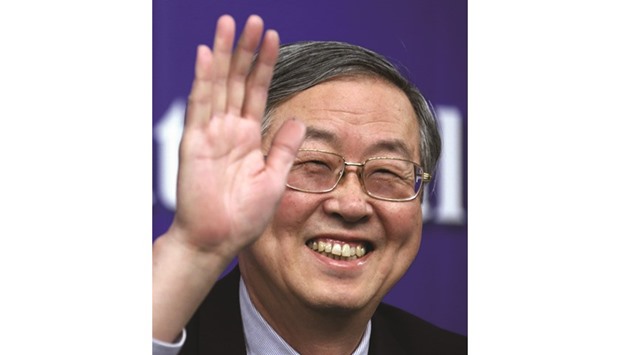China should be flexible in implementing appropriate monetary policy and maintain reasonably ample liquidity, China’s central bank governor Zhou Xiaochuan said at a meeting in Washington over the weekend.
Zhou also called for all sides to take forceful measures to promote global recovery, including refraining from the use of various forms of trade and investment protectionism.
China’s economy is off to a good start in 2016, with economic indicators seeing an obvious pick up and the growth of the services sector outpacing that of the manufacturing industry, Zhou said in remarks delivered at a meeting of the International Monetary and Financial Committee.
He added that China should vigorously push forward supply side structural reform, as well as better balance the areas of economic growth, structural adjustment and risk prevention.
At a separate G20 meeting in Washington last week, Zhou said that China’s foreign exchange market has stabilised, the yuan’s recent trend reflects market supply and demand, and it has held steady against a basket of currencies.
He called for the expanded use of the IMF’s Special Drawing Rights (SDR) to resolve flaws in the international currency system and said China is actively studying plans to issue SDR-denominated bonds.
Over the weekend, China’s finance minister Lou Jiwei said at the G20 meeting that China is taking steps to implement more forceful fiscal policies including increasing its deficit, reducing taxes and dropping costs.
China will also take measures to unwind production capacity and inventory in the iron, steel and coal industries, as well as train and provide arrangements for those who lose their jobs, he said.
Lou added that the country will control rising provincial government debt levels.
As China’s central government’s debt levels are not very high, he said, China will increase its central government debt with the aim of reducing leverage across the entire Chinese society.
Last week, China released its March economic data which saw an improvement due to recent policy steps, supply-side reforms, and international factors, the country’s statistics bureau said.

Zhou: Call to resolve flaws in the international currency system.
